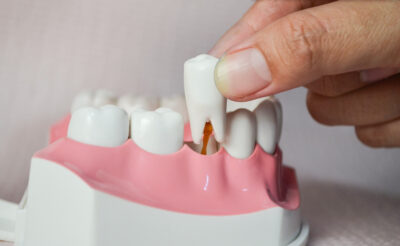 Tooth loss can have far-reaching consequences beyond just the aesthetics of your smile. From impaired chewing ability to bone loss and changes in facial structure, the effects of missing teeth can significantly impact your oral health and overall well-being. Fortunately, modern dental advancements offer effective solutions to address these consequences, including dental implants, crowns, and bridges. In this blog, your team at Grinnell Street Dentistry will lay out these consequences and how they can be addressed.
Tooth loss can have far-reaching consequences beyond just the aesthetics of your smile. From impaired chewing ability to bone loss and changes in facial structure, the effects of missing teeth can significantly impact your oral health and overall well-being. Fortunately, modern dental advancements offer effective solutions to address these consequences, including dental implants, crowns, and bridges. In this blog, your team at Grinnell Street Dentistry will lay out these consequences and how they can be addressed.
Impaired Chewing and Digestion
One of the immediate consequences of a lost tooth is impaired chewing ability, which can compromise your ability to consume a balanced diet. Missing teeth make it difficult to chew certain foods properly, leading to digestive issues and nutritional deficiencies. Dental restorations can restore the functionality of your bite, allowing you to enjoy a varied diet and maintain optimal nutrition.
Bone Loss and Facial Changes
When a tooth is lost, the underlying jawbone no longer receives stimulation from chewing forces, causing it to gradually deteriorate and resorb. Over time, bone loss can lead to changes in facial structure, such as sunken cheeks and a collapsed appearance. Dental implants serve as artificial tooth roots that integrate with the jawbone, providing essential stimulation and preventing bone loss. Crowns and bridges placed over implants or adjacent teeth also help preserve bone density and maintain facial aesthetics.
Remaining Teeth May Shift
The gap left by a missing tooth can cause adjacent teeth to shift out of alignment over time, leading to bite misalignment and further dental complications. Dental bridges and implants fill the space left by missing teeth, preventing neighboring teeth from drifting and maintaining proper dental alignment. Crowns placed on natural teeth adjacent to the gap provide additional support and stability to the dental bridge structure.
Speech Impairment
Missing teeth can affect speech clarity and pronunciation, causing speech impairments and self-consciousness in social situations. Dental prosthetics, such as crowns and bridges, restore the integrity of your dental arch, enabling clear and articulate speech. By filling in gaps and providing support to surrounding structures, these restorative treatments enhance your confidence and communication skills.
Deterioration of Oral Health
Missing teeth can contribute to a cascade of oral health problems, including gum disease, decay, and further tooth loss. Dental implants, crowns, and bridges not only restore missing teeth but also promote optimal oral hygiene practices. By maintaining proper dental alignment and function, these prosthetic solutions facilitate effective brushing and flossing, reducing the risk of dental complications and preserving overall oral health.
Have You Experienced Tooth Loss?
In conclusion, the consequences of tooth loss extend beyond a gap in your smile. If you want to explore treatments to restore your smile after tooth loss, call Grinnell Street Dental in Sheridan, WY, at 307-672-7567.







